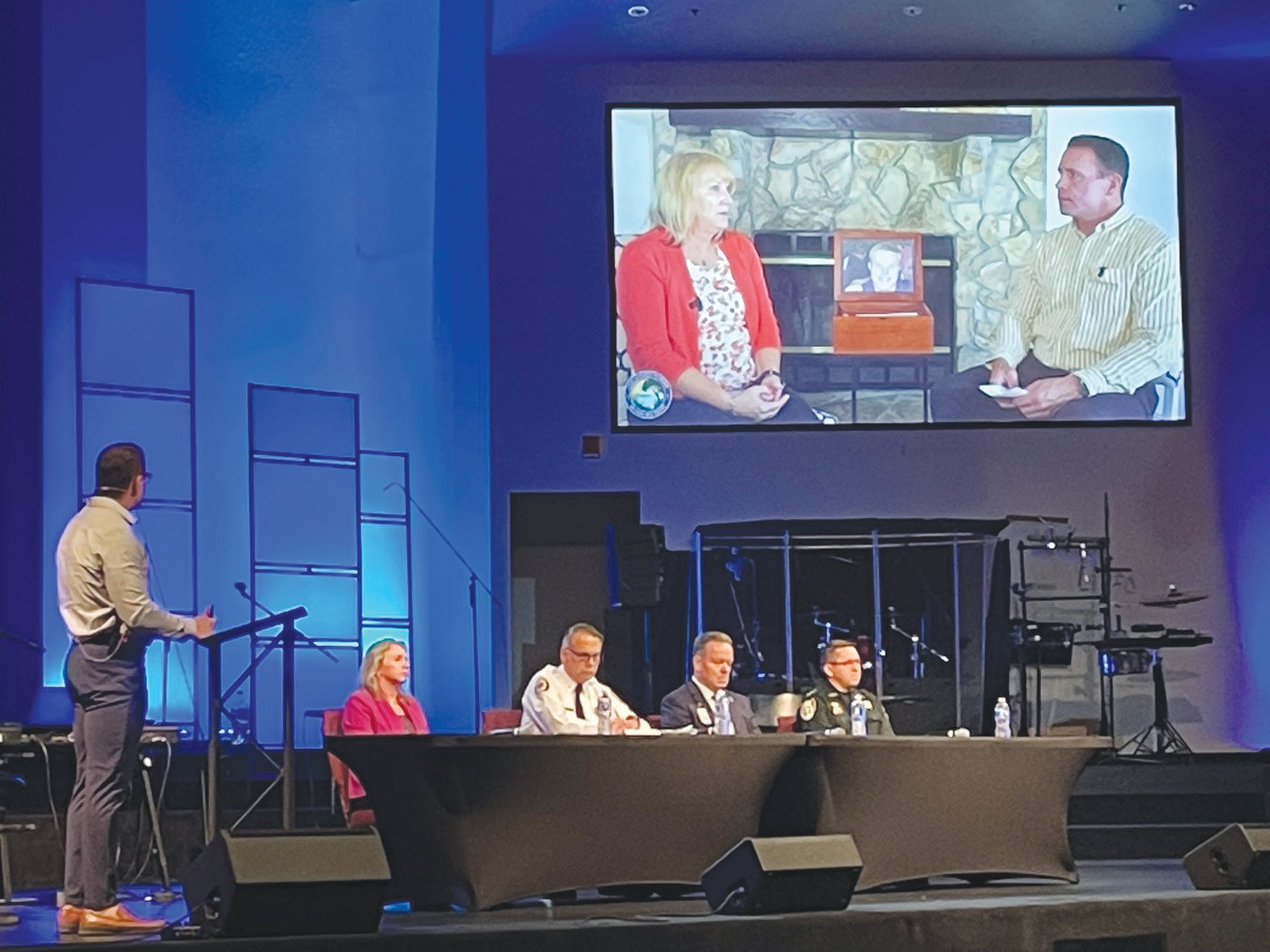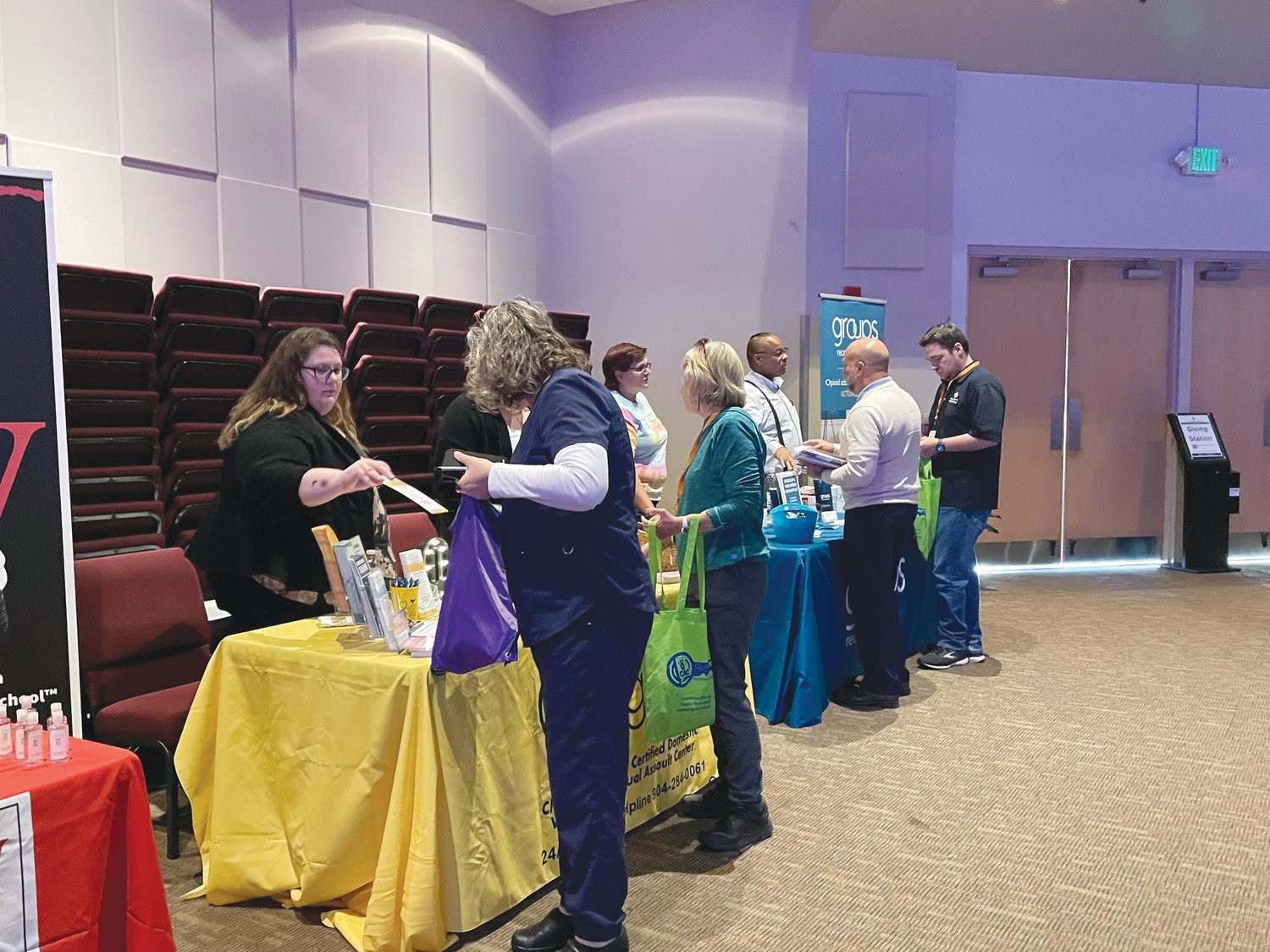One pill can kill: Clay County mother shares her painful story of losing a son to drug abuse
CLAY COUNTY – “It was Friday night. He had just gotten off work and he looked at me – I was on the phone talking to my sister – and he said I love you, mom. I’ll see you tomorrow. That was …
This item is available in full to subscribers.
Attention subscribers
To continue reading, you will need to either log in to your subscriber account, below, or purchase a new subscription.
Please log in to continueDon't have an ID?Print subscribersIf you're a print subscriber, but do not yet have an online account, click here to create one. Non-subscribersClick here to see your options for subscribing. Single day passYou also have the option of purchasing 24 hours of access, for $1.00. Click here to purchase a single day pass. |
One pill can kill: Clay County mother shares her painful story of losing a son to drug abuse
CLAY COUNTY – “It was Friday night. He had just gotten off work and he looked at me – I was on the phone talking to my sister – and he said I love you, mom. I’ll see you tomorrow. That was the last time I heard from him because he never came home.”
Middleburg’s Tina Baker will never forget the night she lost her youngest son to a fentanyl-laced cocaine overdose and she wants to make sure others don’t go through the same pain.
Jacob was a soccer player at Middleburg High. He battled months of addiction after being prescribed Oxycontin following two major knee surgeries.
“At the time we didn’t know that Oxycontin was so addictive,” the mother said. “Eventually, it got so bad I had to kick him out of the house. He ended up staying with some friends. Unfortunately, the addiction was so tough that he stole checks from a family and forged their names to pay for his drug habit.”
After serving time behind bars, Jacob went through rehabilitation and detox.
“He began to be drug tested regularly. He had a stable job. He was receiving counseling. He was going back to school,” said Baker. “But he started using again. He tried to beat it but he couldn’t.”
This time, it cost Jacob his life.
“Jacob and a friend he graduated high school with met in Orange Park. They had gone out and bought some cocaine. I don’t know if he knew it was laced. I don’t think he would have,” Baker said. “It may not have been the cocaine that killed him, but the fentanyl did.”
Now, Baker shares Jacob’s story to warn others of the dangers of experimenting with opioids.
“It’s on our streets, here in Clay County. We have to be preventative across the board. Our school districts, our business leaders, our churches, and our parents,” she said. “We have to be able to talk freely about this. Not that we become afraid, but we become more aware.”
Jacob was not alone in his struggles. Last year, 8,000 people died of an overdose in Florida. According to the CDC, 107,375 people in the United States died of drug overdoses and drug poisonings in 2021. A staggering 67% of those deaths involved synthetic opioids like fentanyl.
Project Opioid Jax’s TJ Ward was the event moderator of the Overdose Awareness Seminar recently at First Baptist Middleburg. Panelists included Clay County Sheriff’s Office Director Wayne McKinney, Clay County Fire Rescue Battalion Chief Glenn East, Clay County District Schools Superintendent David Broskie and HCA Florida Orange Park Hospital Director of Pharmacy Dr. Jodie A Graves. The Panel discussed the global effects of opioid use and overdoses, as well as the Opioid crisis here in Clay County.
“In 2020 alone, there were 108,000 deaths, a 12% increase from the previous year. Florida represents 6.2% of those deaths,” said Dr. Graves. “For perspective, nationally, that would be one-half of Clay County, and for the state of Florida, that would be Orange Park.”
According to Broskie, 31% of Clay County’s school-age children are being raised by grandparents, in large part by the drug epidemic. “That’s why we have to bring awareness to students when it comes to the overdose crisis,” said Broskie.
If you or someone you know is at increased risk for opioid overdose, especially those struggling with opioid use disorder, you should carry naloxone and keep it at home.
“Narcan is an opioid antagonist. Opioids bind to the receptors of the brain and when those receptors get filled up, that’s what causes symptoms. Narcan interrupts those signals because it knocks off and replaces the opioid molecules. It cleans the receptors, so they are not stimulated to shut down,” East said.
East has given away more than 700 Narcan kits through the Community Paramedicine program.
McKinney agrees that it will take a group effort to make a difference.
“We’re trying to partner with these other groups to help attack the issue because we know that it takes a community. No one alone can fix this problem,” he said.
If you want to learn strategies to reduce access to opioids, and resources for treatment and recovery available in the county, go to Clay Action Coalition and visit their resource page, or email community.paramedicine@claycountygov.com.










